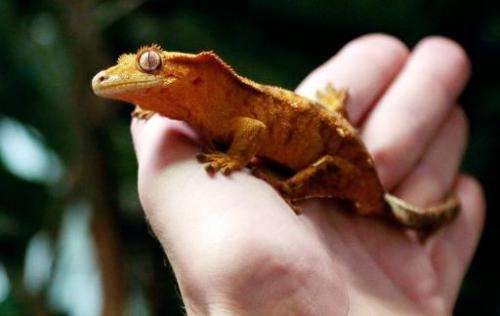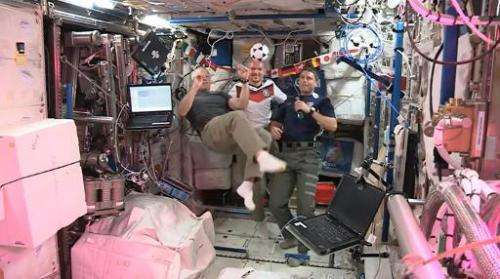Space sex geckos at risk as Russia loses control of satellite

Several geckos are at risk of a rude return to earth after Russia lost control of a research satellite testing the effect of weightlessness on the small lizards' sex lives.
Russia's Progress space firm confirmed Thursday that the Foton-M4 satellite was not responding to commands from the ground to start its onboard engine and lift it to a higher orbit.
However the company said in a statement that all other systems on the satellite, which was launched on July 19, were operating normally and information from the scientific experiments was being transmitted to the ground.
"The equipment which is working in automatic mode, and in particular the experiment with the geckos is working according to the programme," said Oleg Voloshin, a spokesman of Russia's Institute of Medico-Biological Problems, which is running the experiment.
The two-month mission is monitoring by video how well the geckos sexually reproduce in space, according to the Institute's website.
Progress said the design of the Foton-M4 "allows for the functioning of the satellite in automatic mode for a long time."
A space expert cited by Interfax said that in its current orbit the satellite could stay up in space as long as three or four months.

Regaining control over the satellite's engine will be needed to ensure its controlled return to Earth as planned in two months to recover the geckos for further study.
The geckos are one of several biological experiments on board the satellite, which also include studies of fruit flies and mushrooms.
The mishap is the latest in a series of setbacks that have plagued Russia's once-famed space programme.
However a Russian cargo craft successfully docked with the International Space Station earlier on Thursday, the Russian space agency Roskosmos said.
© 2014 AFP




















